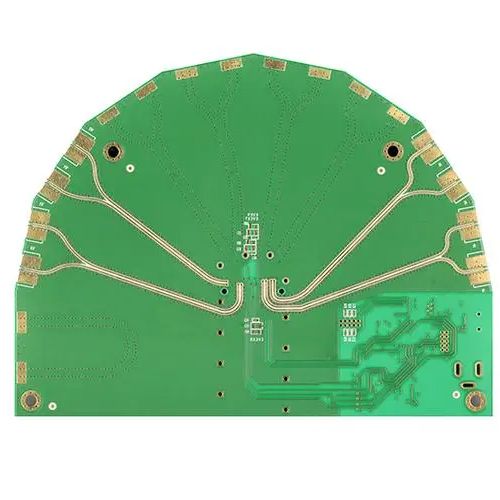Overview of Thermal Interface Materials
Thermal interface materials (TIMs) are used to facilitate heat transfer between two surfaces. They are often applied between a heat sink and a high-power semiconductor device to improve cooling. Key properties of TIMs include high thermal conductivity, electrical insulation, and conformability to mating surfaces.
Rogers ARLON TIM Offerings
Rogers Corporation’s ARLON brand offers a wide range of TIM products in various forms:
Phase Change Materials
ARLON phase change materials (PCMs) are wax-like solids at room temperature that melt during device operation to improve surface contact and thermal transfer. Key products:
- ARLON HT-270X: Designed for 5G infrastructure with thermal conductivity of 4 W/m-K
- ARLON HT-271X: General purpose option with 3.2 W/m-K conductivity
Thermal Pads
Pre-formed ARLON thermal pad options promote heat dissipation without messy application:
- ARLON silicone pads: Soft, electrically isolating interface
- ARLON graphite pads: Reinforced with graphite for 4+ W/m-K conductivity
Thermal Greases
ARLON also offers traditional thermal greases and gels:
- ARLON HTG3: Silicone grease with 3 W/m-K conductivity
- ARLON HTP3: Ceramic-filled grease with 5+ W/m-K performance
| Product | Type | Thermal Conductivity |
|---|---|---|
| ARLON HT-270X | Phase Change Material | 4 W/m-K |
| ARLON HT-271X | Phase Change Material | 3.2 W/m-K |
| ARLON Silicone Pad | Thermal Pad | 1 – 3 W/m-K |
| ARLON Graphite Pad | Thermal Pad | 4+ W/m-K |
| ARLON HTG3 | Thermal Grease | 3 W/m-K |
| ARLON HTP3 | Thermal Grease | 5+ W/m-K |
Benefits of ARLON TIMs

Key benefits offered by Rogers ARLON branded thermal interface materials:
- High thermal conductivity for optimal heat dissipation
- Electrically isolating for safe device operation
- Various material formats for design flexibility
- Silicone and organic options for diverse needs
- High reliability and long service life
With their broad material selection, Rogers ARLON TIMs provide solutions for demanding thermal management applications across industries.
Frequently Asked Questions
What industries use TIMs?
TIMs are used extensively in electronics, automotive, and aerospace applications where heat dissipation is critical. Key examples include PCs, 5G base stations, power modules, radars, and avionics.
How is thermal conductivity of TIMs measured?
Thermal conductivity is tested according to ASTM D5470 standards. It represents the rate of heat transfer per unit of thickness. Units are W/m-K.
What thickness TIM should be used?
TIM thickness depends on surface roughness. Typically 25-100 microns is recommended. Phase change materials account for surface variations.
How are TIMs applied?
Application depends on format. Greases are dispensed from tubes, pads are attached with adhesive, phase change materials may come with carriers. Proper application is key.
How often should TIMs be reapplied?
Most quality TIMs like ARLON products will last 3-5 years. Periodic inspection of devices is recommended to ensure no pump-out or drying.

Leave a Reply